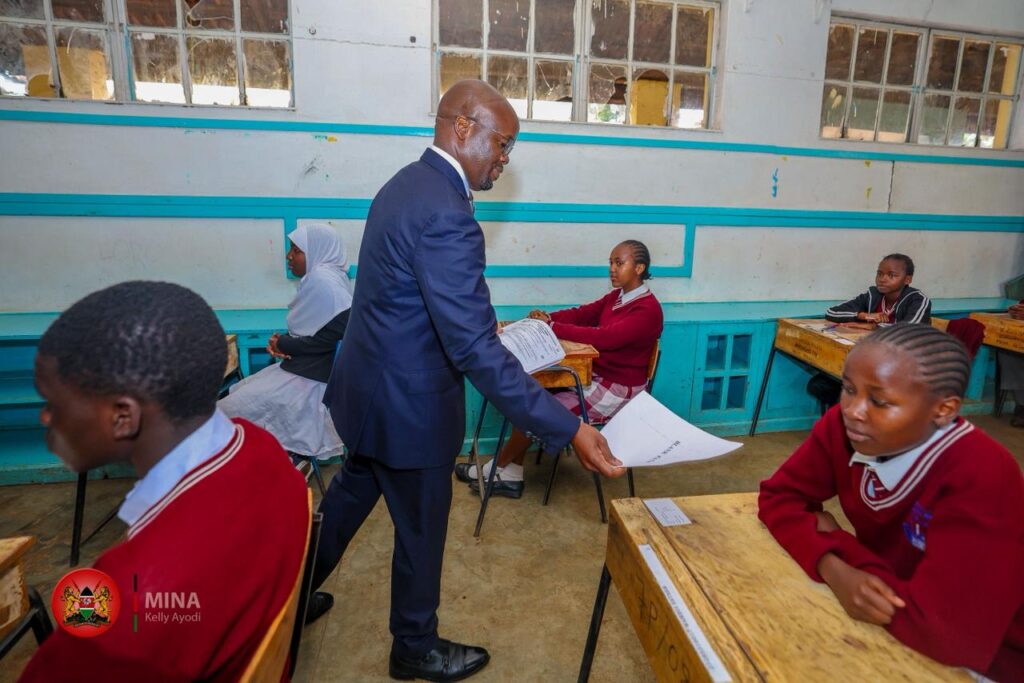The government has intensified efforts to protect the integrity of the 2024 Kenya Certificate of Secondary Education (KCSE) exams by launching round-the-clock social media surveillance. Interior Principal Secretary Raymond Omollo announced on Wednesday, October 29, that a multi-agency team had been activated to monitor digital platforms and curb fake exam leaks and online fraud.
The surveillance team operates from the National Command Center under the Ministry of Interior and coordinates real-time responses to any potential examination breaches. “A multi-agency team is conducting 24-hour surveillance on social media platforms to curb fake exam leaks and digital fraud,” PS Omollo stated, affirming the government’s commitment to upholding examination integrity.
Omollo’s remarks follow a Kenya National Examinations Council (KNEC) report that identified Telegram and WhatsApp as major platforms used to circulate leaked exam materials. The report revealed that 51 Telegram channels were being used for exam-related malpractice, with 18 already flagged for violating digital examination protocols.
This year, approximately 996,078 candidates are scheduled to sit for the KCSE exams, which will run from November 3 to November 21 across the country.
In a related move, KNEC Chief Executive Officer David Njengere recently announced new reforms to tighten security during national examinations. Among the key measures is the introduction of personalized examination papers for all KCSE and Kenya Junior School Education Assessment (KJSEA) candidates. Each paper will bear the candidate’s name and index number, and both the paper and its counterfoil will require the student’s signature. The signed counterfoils will then be collected separately by supervisors for accountability.
Additionally, KNEC will continue the double collection of KCSE examination papers, where scripts for the afternoon session are released only shortly before the exam begins. This strategy aims to minimize early exposure and potential leaks as the government reinforces the credibility of national examinations.

